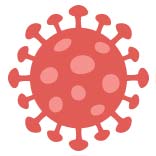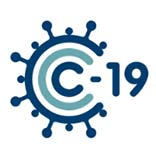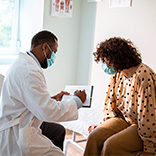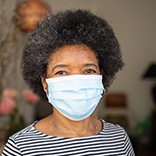Testing for Infection: Detecting the Virus’ Genetic Material
This test detects bits of the virus itself and can tell you if you’re currently infected. Swabs are used to collect samples from the mucus membranes in the nose and throat where the virus may be growing or have been coughed up from the lungs. There are two types of tests that detect SARS-CoV-2’s genetic material, or RNA: PCR tests and isothermal amplification, or IA, tests. Because RNA is made up of nucleic acids, both PCR and IA tests are also called nucleic acid amplification technology, or NAAT, tests. PCR tests are considered the gold-standard of NAAT testing.





Nasal Swab Test
This test is an important tool to determine who should quarantine to help stop the novel coronavirus’ spread. As of early August 2021, the U.S. Food and Drug Administration has granted emergency use authorization to more than 250 molecular SARS-CoV-2 tests. Most have been designed for use in a hospital or medical setting, but a few have been authorized for use in certain patient care settings. Several offer at-home nasal swab collection for lab-based PCR analysis, and just two kits have received emergency authorization to test for SARS-CoV-2 infection at home.
Testing for Infection: Rapid Antigen Test
These tests detect viral proteins, or antigens, in a sample taken using a nasal swab. This type of test can detect an active infection much faster than the PCR test and doesn’t need a specialized lab to run. However, it’s more likely to return an inaccurate result. Inaccurate results come in two types: Either the test wrongly suggests that someone who is infected with SARS-CoV-2 is virus-free (known as a false negative), or the test wrongly suggests that someone who is actually uninfected is carrying the virus (known as a false positive).





Rapid Antigen Test
The proteins that the rapid antigen detects are only expressed by the virus if it’s replicating, so the test is best used to detect an early infection. The test is faster, cheaper and easier to run than the gold-standard PCR test. Most of the at-home coronavirus testing kits given emergency use authorization by the FDA are rapid antigen tests.
However, results from rapid antigen tests are less reliable. If the antibodies flow all the way down even in the presence of viral proteins, or get snagged in both lines even when there are no viral proteins to bind, the test can return an inaccurate result. If this test returns a negative result for someone with symptoms of COVID-19, a health care provider may order a more accurate molecular test. According to the World Health Organization, as many as half of people infected with SARS-CoV-2 will receive a false negative result. Experts worry that these tests may give infected people who test negative a false sense of security, or cause unneeded worry in people who aren’t infected but test positive for SARS-CoV-2.
Testing for Exposure: Blood, Antibody or Serology Test
If you’ve gotten a blood test, antibody test, or serology test, you’ve been tested for an immune response to SARS-CoV-2. This type of test uses a blood sample to detect specific immune proteins known as antibodies. These are found in the serum, the clear liquid that remains when clotting proteins and cells have been removed from blood. Our bodies make antibodies in response to infections, including coronaviruses. The ELISA assay is the most common method used to detect these antibodies.








Blood Test
While we produce antibodies to coronavirus during infection, antibodies to viruses also linger long after the infection has passed, which makes serology tests poor indicators of active infection. Additionally, most serology tests are designed detect a type of antibody that arises later during an infection, making them better at showing prior exposure.
What these type of antibody tests cannot do is show whether someone is protected from reinfection by SARS-CoV-2. A different type of test, which measures how well a person’s antibodies block infection by the novel coronavirus, gets closer to showing whether they’re protected or not. (These tests are not yet available in clinical settings.) Scientists are currently studying the question of how well antibody levels — whether after infection or vaccination — correlate with protection against infection (or reinfection) by SARS-CoV-2.
And while the ELISA is a major type of serology test, it’s not the only one available. Several kinds of tests, including those that use technology similar to pregnancy tests, have hit the market become available, though not all give reliable results.
How Scientists Use These Tests

Tests for both active infection and prior exposure are being used as health officials and scientists grapple with the scope of the SARS-CoV-2 epidemic. Both will help us understand how far the virus has spread, who it affects and how much. The serology test is also used in studies looking at the potential therapeutic use of antibodies from those who have had COVID-19 and recovered.
The serology test will also help them determine whether most people mount a detectable immune response the novel coronavirus, as well as how long it lasts, key information needed to develop a protective vaccine. Studies of correlates of protection — biological indicators that a vaccine protects against coronavirus infection — draw on information provided by serology tests.
But as the U.S. moves to reopen the economy and companies speed vaccine development, other tests must also come into play. A critical piece of information, which neither the swab test nor the basic serology test provide, is how well an immune response to SARS-CoV-2 protects against reinfection. Not all antibodies will neutralize, or block infection, by the novel coronavirus. Other tests that measure neutralization, like one being used by Moderna in their vaccine trial, will be to critical understanding whether a vaccine looks promising. They will also give us a better sense of how much we can rely on herd immunity to protect against later waves coronavirus infection. Currently there are no tests for neutralizing immunity available outside of a research setting.
Enrolling Participants: COVID-19 Clinical Trials

COVID-19 Clinical Research Center
Located on Fred Hutch's South Lake Union campus in Seattle, the COVID-19 Clinical Research Center conducts Phase 1-3 clinical trials to find effective treatments for people who are positive for SARS-CoV-2.

COVID-19 Prevention Network
Formed by the National Institute of Allergy and Infectious Diseases at the National Institutes of Health, CoVPN conducts Phase 3 efficacy trials of COVID-19 vaccines and monoclonal antibodies to prevent COVID-19.

COVID-19 and Cancer Consortium
More than 30 U.S. cancer centers and organizations, including Fred Hutch and its clinical care partner Seattle Cancer Care Alliance, have come together to collect and disseminate data to better understand the scope and severity of COVID-19 in patients with cancer.

Seattle COVID Cohort
The Seattle Vaccine Trials Unit, part of Fred Hutch, is looking for people who are at risk for COVID-19 or have tested positive for the virus that causes COVID-19 to take part in a research study. Individuals are needed to help us learn more about how the virus affects the immune system.

COVID-19 Immune Protection Study
Fred Hutch researchers are seeking healthy adults without current or past history of COVID-19 to take part in a research study about COVID-19 immunity. Volunteers will be paid to perform weekly home testing for COVID-19 and complete symptom questionnaires.
